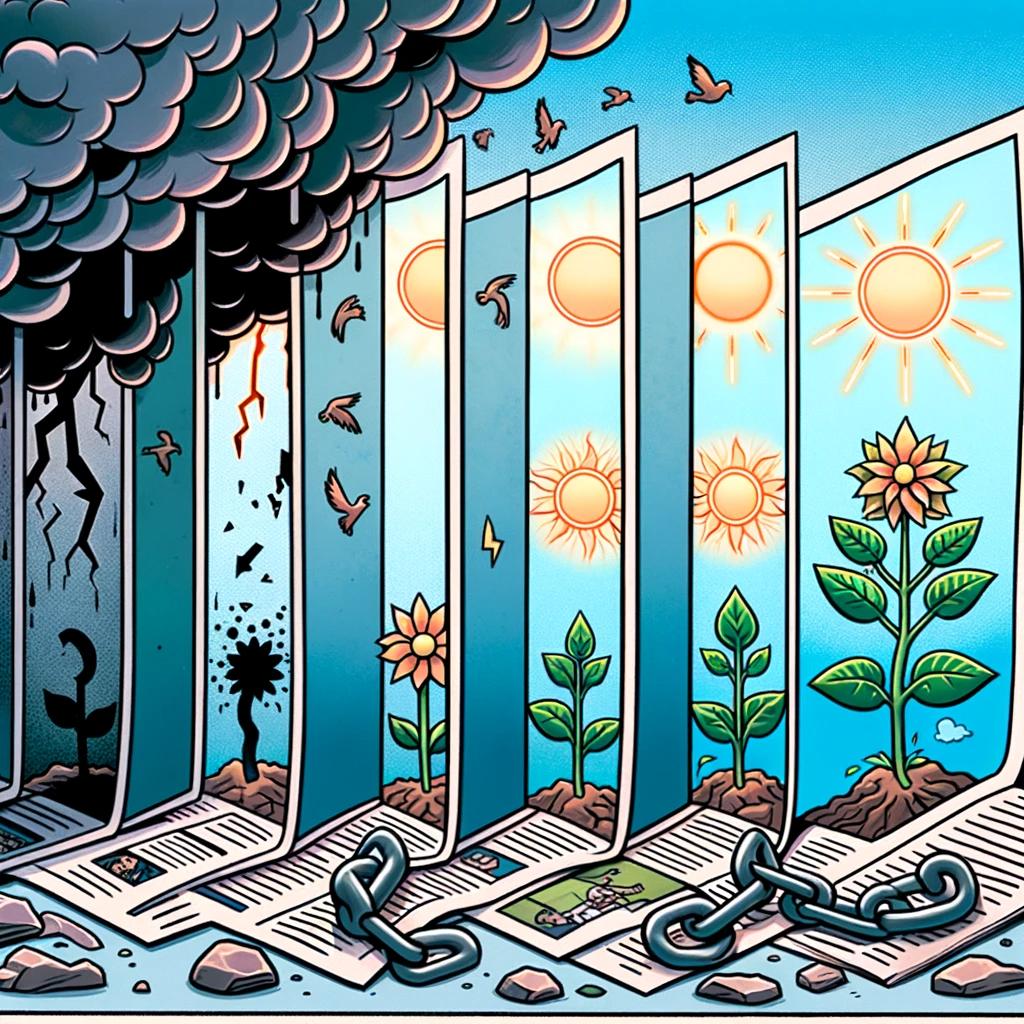
The Lingering Stigma: A Look into Dehumanization of Substance Users in the News
In the ever-evolving dialogue on substance use and public health, a study titled “A linguistic analysis of dehumanization toward substance use across three decades of news articles” sheds light on the portrayal of people who use substances (PWUS) in media. The study dissects over three decades of coverage in the New York Times, revealing that despite some shifts in public opinion, significant levels of dehumanization persist, particularly for certain substances.
The Power of Words: Media’s Role in Shaping Attitudes
The study dives into computational linguistics, analyzing the language within over three million news articles. This systematic approach allows for a nuanced understanding of how words and phrases associated with people who use substances (PWUS) have been embedded in public discourse. It’s a testament to the media’s profound influence on public opinion and policy. As society repeatedly encounters certain portrayals or descriptions in media, these depictions begin to shape the collective consciousness, crafting narratives that can either humanize or dehumanize groups.
In the realm of public health, this linguistic shaping is particularly potent. The words chosen to describe PWUS can significantly influence the public’s perception and the users’ self-identity, affecting everything from the willingness to seek help to the types of policies and resources allocated for treatment and support. This study’s findings underscore the need for a conscientious approach to media language, advocating for a shift towards terms that reflect understanding, dignity, and the complex reality of substance use disorders.
The Results: Persistent Dehumanization with a Glimmer of Change
The study presents a somewhat dichotomous picture of the state of media language surrounding substance use. On the one hand, it reveals a stubborn undercurrent of dehumanization, with certain pejorative terms and narratives showing resilience over decades. This persistent stigmatization has real and lasting effects, contributing to a societal view of PWUS that is often lacking in empathy and understanding. Such a perspective can hinder effective policy-making, reduce the quality of care, and perpetuate the cycle of stigma and silence.
On the other hand, the study offers a glimmer of hope, particularly regarding the portrayal of marijuana users. Over time, language has seen a noticeable shift from predominantly negative to more neutral or even positive descriptors. This change is parallel to broader societal trends, including the legalization and medicalization of marijuana in various regions. As the public begins to view marijuana use in a more nuanced and informed light, media language evolves accordingly, reflecting and reinforcing changing attitudes. This particular finding is a testament to the potential for transformation in how society perceives and discusses substance use, highlighting the opportunity for more informed, compassionate public discourse and policy-making in the future.
Implications for Public Health: Humanizing Substance Use
The study’s insights are crucial for public health professionals and policymakers. Recognizing the detrimental effects of dehumanizing language, there’s a growing need to foster a more empathetic, informed dialogue around substance use. This involves promoting language that emphasizes the human aspect of substance use disorders and advocating for policies rooted in compassion and evidence-based treatment.
Conclusion: A Path Forward
The study calls or media outlets, healthcare providers, and lawmakers to reconsider the narrative around substance use. Addressing the ingrained biases and fostering a more humane approach can pave the way for more effective public health strategies and support systems.
In conclusion, the continuous portrayal of PWUS in media necessitates a conscientious effort to shift from a stigmatized narrative to one that is supportive and understanding. The findings of this study highlight the importance of language in shaping public attitudes and policies, urging a move towards a more compassionate, humanized health discourse.
Join the Vanguard of Public Health Today!
Are you ready to be at the forefront of health advocacy and research? ‘This Week in Public Health’ brings you weekly insights and updates that matter most. From breakthrough research to groundbreaking community initiatives, our newsletter is your ticket to staying ahead in the rapidly evolving world of public health. Subscribe for free and be part of the change you wish to see!



